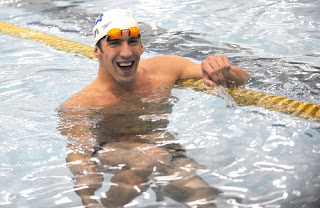Beyond the trophies, medals, and championships, star athletes human beings are like everyone else; they struggle with the same types of problems that we all face in day-to-day life. Heartache, personal and professional strife, and mental toil do not pass over individuals merely because they are successful or famous. Everyone is eligible to battle demons and sail through the murky, usually isolating, seas of mental illness. In some ways, athletic icons are forced to lead lives that are exclusionary; when everyone is looking up to you, how then can one relate.
Human beings are social animals; we rely heavily on our connections with one another to find meaning and purpose outside our professional roles. The general public may see it a challenge to understand or empathize when they hear about people who are seemingly at the top of the world struggling with anything. Let alone mental health conditions like depression; some of us have probably asked ourselves, ‘what does someone who has everything, all the skill in the world, have to be depressed about?’ The simple answer is: more than any of us can know or understand; if only success was protection against mental turmoil.
Those of you who follow the news pertaining to addiction and co-occurring mental health conditions may be aware that more celebrities and cultural icons are speaking up about their battles with psychological conditions. In the wake of the Soundgarden’s Chris Cornell and Linkin Park’s Chester Bennington’s suicides last year, many famous musicians have begun sharing their stories about addiction, mental illness, and recovery. Both deaths are tragedies, but if they lead to more open discussions about mental health then perhaps there is a slight silver lining. For too long has psychological illness lived in darkness; mental health is equally as salient as physical well-being, and furthermore—the two are not mutually exclusive.
Talking About Mental Illness
Just as with professional musicians, who many people associate with round-the-clock partying, addiction, and subsequent melancholy, so too is the case for many professional athletes. Athletes are notorious for using performance-enhancing drugs; Wimbledon champs losing titles for abusing amphetamines; Olympic gold medalists struggling to get out of bed in the morning. The above is to give you a few examples showing that none of us have any way of knowing what is going on beneath the surface of another.
It’s likely that some of you have heard tell of the most decorated athlete in Olympic history, Michael Phelps, sharing about his battle with depression. He has been in the news a lot over the last a couple years encouraging those living with mental health conditions to seek assistance. Notwithstanding 23 Olympic gold medals, there are times when in the abyssal depths of depression he’s considered suicide. And like many people who battle depression, Phelps admits drinking copious amounts of alcohol and has had more than one citation for driving under the influence.
Today, he travels around the country doing speaking engagements where he discusses both his achievements and hardships. He has become a steward, and a loud voice in a sense, for the more than 300 million people around the globe struggling with depression. Phelps now has a partnership with Talkspace, an online talk therapy resource for people living with mental illness, the Associated Press reports. Through working with Talkspace, a tool which pairs individuals experiencing psychological strife with therapists, he hopes to do his part in breaking down the stigma looming over mental illness.
“Somebody told me yesterday about his daughter going through a very, very deep depression and not really wanting to be alive,” Phelps said in an interview with The Associated Press. “She read stories about me opening up. He told me how much that helped her. For me, that’s way bigger than ever winning gold medals. The chance to potentially save a life, to give that person an opportunity to grow and learn and help someone else, there’s nothing better in life.”
Addiction Treatment
Please contact Hope By The Sea to learn more about how we can help you or a loved one recover from addiction and co-occurring mental health disorders. Healing and recovery are possible, and our dedicated staff can assist you in turning around your life.


